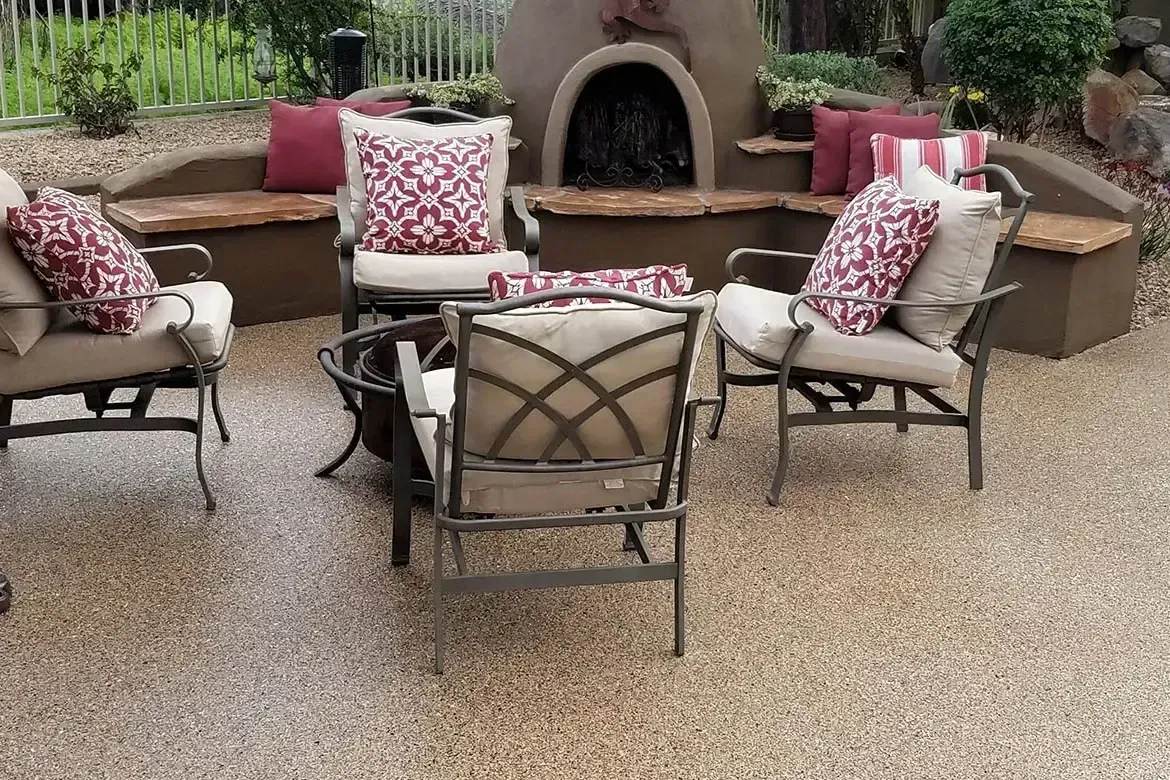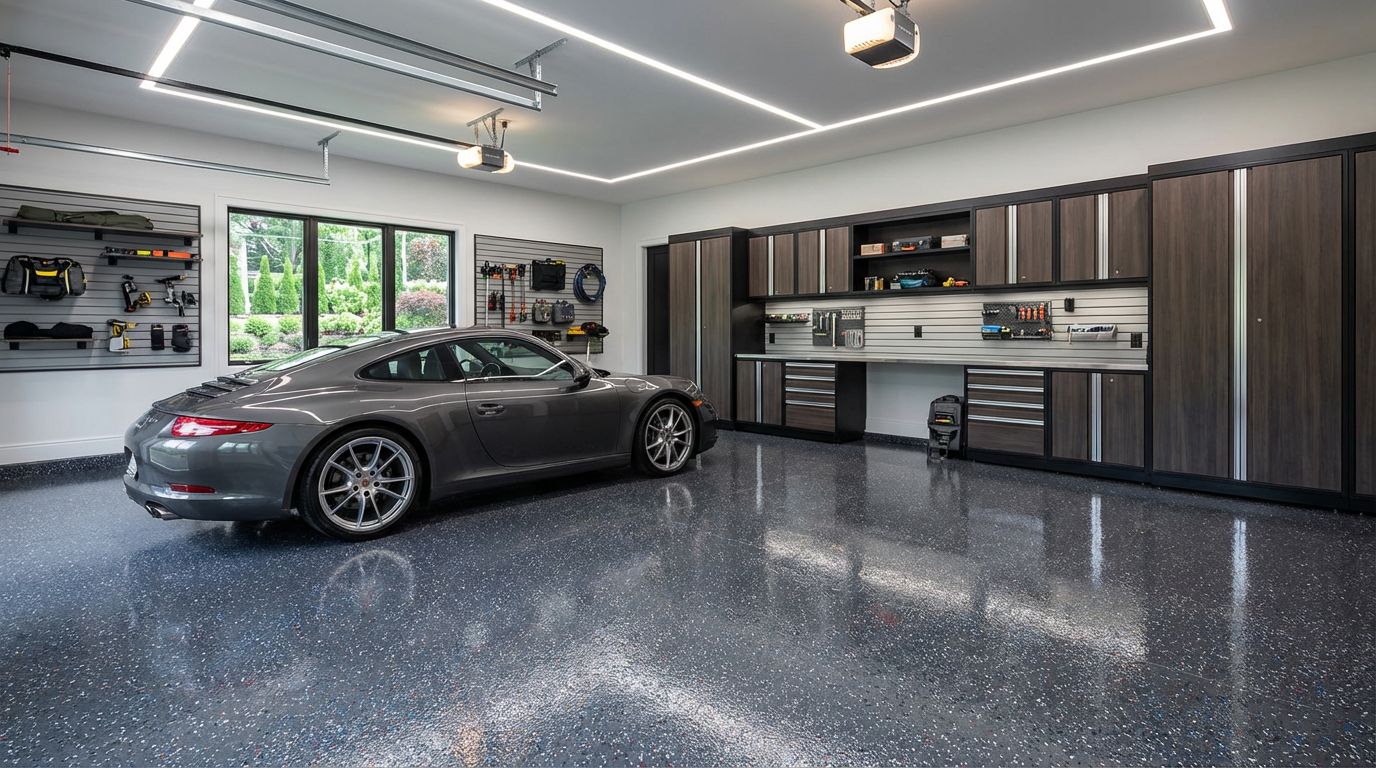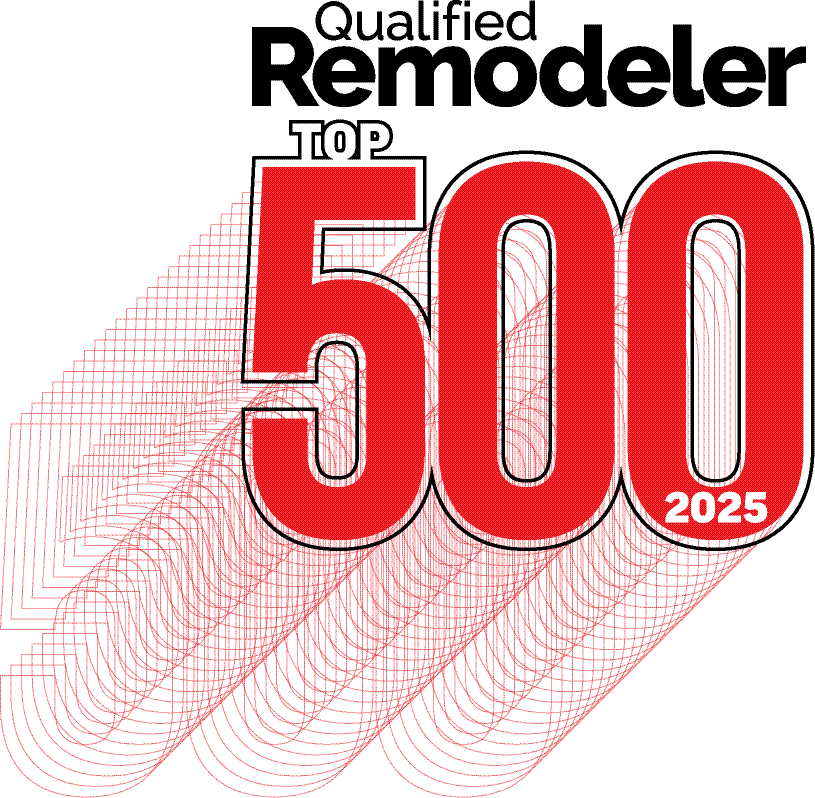How Much is Epoxy Floor Coating? A Complete Cost Guide
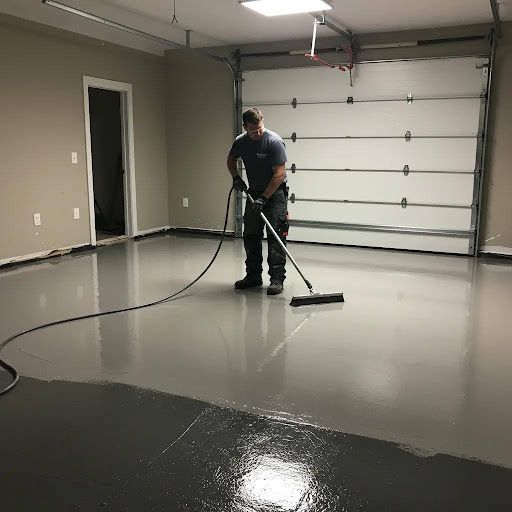
Professional installation typically costs $4 to $12 per sq ft, with labor 30–60% of the total, including grinding, patching, and multiple coats. DIY kits range from $50 to $600 for 200–500 sq ft, offering upfront savings but higher risk of failure. Professional installation generally provides better long-term value for high-use areas.
Garage Epoxy Floor Cost Comparison
Garages are mid-range in per-sqft pricing, requiring oil-stain remediation and abrasion resistance. Basements may cost more with moisture mitigation, and commercial floors demand industrial-grade systems. Select systems based on intended use.
Key Factors Affecting Epoxy Floor Coating Cost
Epoxy floor coating costs are influenced by epoxy type, surface preparation, project size, labor rates, geographic location, and decorative finishes. The resin system determines material cost and durability, while prep tasks add charges. Larger areas benefit from economies of scale. Regional labor variations and decorative options also introduce premiums.
Common epoxy types with typical material cost per square foot, pros, and cons:
- Water-based epoxy: $0.50–$1.50/sqft. Low VOC, affordable, but thinner film, less durable.
- Solvent-based epoxy: $1.00–$2.50/sqft. Better adhesion, moderate cost, but higher VOCs, odors.
- 100% solids epoxy: $2.50–$6.00/sqft. High durability, long life, but higher material cost.
- Metallic epoxy: $3.50–$8.00/sqft. Premium aesthetics, depth, but complex application, premium.
- Flake broadcast system: $2.00–$6.00/sqft. Slip resistance, decorative, but additional labor.
Higher-material-cost systems generally offer better longevity and performance.
Epoxy Type and Durability
Epoxy formulation dictates material cost and lifespan. 100% solids epoxies offer the thickest, most durable film and cost more; water-based systems are cheaper but require more frequent recoats. For even greater durability and faster cure times, consider exploring polyaspartic floor coatings. Metallic and flake systems add complexity. Choose the right coating type based on use-case.
Surface Preparation is Critical
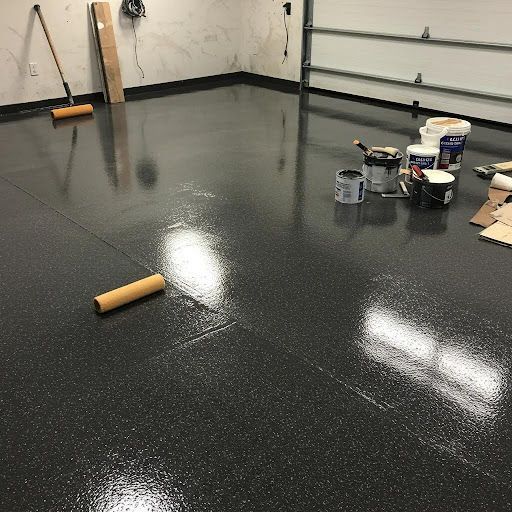
Epoxy floor coating, a durable, chemical-resistant resinous treatment, sees costs in 2025 vary widely. For a comprehensive overview of various epoxy floor coating systems, this guide explains per-square-foot costs, compares DIY vs. professional installation, and highlights key pricing factors. It offers clear cost ranges, budgeting examples, and installation tips to help homeowners and facility managers make informed decisions and avoid surprises.
Average Epoxy Flooring Cost Per Square Foot in 2025
Average epoxy flooring cost per square foot in 2025 ranges from $4 to $12 for typical residential systems, covering DIY kits to standard professional two-coat installations. This includes materials and basic labor, but often excludes deep concrete repairs, moisture mitigation, and premium decorative finishes. Project size, location, and required preparation significantly influence the final estimate.
Typical cost ranges and totals for common project sizes:
- 1-car garage (~200 sq ft): DIY $200–$400 | Pro $1,200–$2,000
- 2-car garage (~400 sq ft): DIY $400–$800 | Pro $2,400–$4,000
- Basement (800 sq ft): DIY $800–$1,600 | Pro $4,800–$8,000
While DIY kits are cheaper upfront, professional installs offer comprehensive prep, warranty, and better longevity. Always compare multiple professional quotes.
Professional and DIY Epoxy Flooring Costs
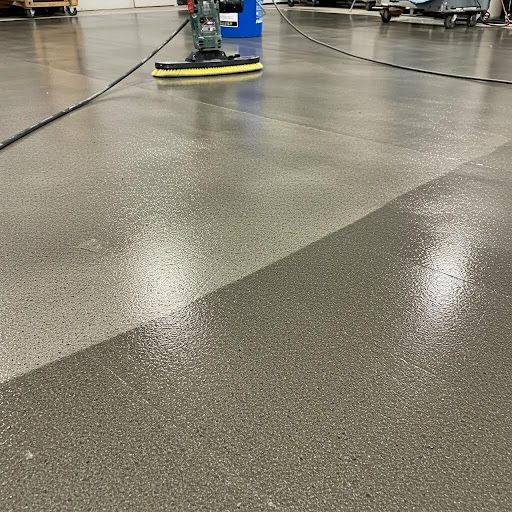
Proper surface preparation is crucial for adhesion; inadequate prep leads to delamination. Tasks include cleaning, grinding, crack repair, and moisture testing. Skipping these saves money upfront but increases lifecycle costs if failure occurs. Investing in correct prep extends coating lifespan.
Preparation tasks and estimated costs:
- Cleaning/Degrease: $0.10–$0.50/sqft.
- Grinding/Profiling: $0.50–$2.00/sqft.
- Crack/Spall Repair: $0.50–$3.00/sqft.
- Moisture Mitigation: $1.00–$4.00/sqft.
Project Size, Labor, Location, and Custom Finishes
Larger project sizes create economies of scale, lowering per-sqft prices. Labor is 30–60% of total cost, influenced by regional wages and project complexity. Geographic location affects pricing through local labor rates and market demand. Custom finishes (flakes, metallics, anti-slip) add premiums for materials and time-intensive application; budget a 10–40% premium.
Epoxy Floor Coating Installation: Step-by-Step Guide
Epoxy floor coating installation involves inspecting/prepping concrete, applying primer, placing epoxy base coats (with optional decorative layers), and finishing with a protective topcoat followed by cure time. Each stage has specific timing and environmental requirements for adhesion and finish quality.
Key installation steps:
- Inspection and prep: Test moisture, clean, and grind the slab.
- Priming: Apply epoxy primer for adhesion.
- Base coat(s): Mix and apply epoxy base coats; add flakes/pigments if specified.
- Topcoat and cure: Apply topcoat and allow full cure.
Pre-Installation and Common Mistakes
A pre-installation checklist ensures substrate readiness and environmental control. Common mistakes include inadequate surface prep, incorrect mixing, and skipping moisture testing, leading to delamination. Following manufacturer instructions and proper cure times prevents costly rework.
Epoxy Flooring Lifespan and Maintenance Costs
Epoxy flooring typically lasts 10 to 20 years, depending on system type, prep quality, and in-service conditions. Routine maintenance is inexpensive: regular sweeping, mopping with pH-neutral cleaners, and periodic topcoat refreshes. Spot repairs or re-coating can restore performance, reducing lifecycle expenditures. Proper installation directly correlates with longer lifespan and lower total cost of ownership.
In Conclusion
Epoxy flooring offers a durable, aesthetic solution. Costs vary by system, prep, and customization, so understanding these factors ensures accurate budgeting and a long-lasting finish. To learn more about our expertise and commitment to quality, please visit our About Us page.

